Our Primary Programme encompasses Grade 1 through Grade 5. The pedagogy of primary programme at DISHA is highly child centric with the focus on experiential learning. While we are still a Montessori forward programme, our primary education concentrates consciously on the students’ Listening, Speaking, reading and writing capabilities in their formative years. Our methodology of immersive learning enhances the child’s cognitive development, social skills, physical and emotional being. We have dedicated student-teacher chats, open questioning forums, peer teaching and a ton of hands on fun filled learning activities. We believe that a happy classroom results in a happy child and therefore we have crafted the relevant learning experiences that are holistic. We ensure a balance between indoor and outdoor classes. Our programme emphasises on team building skills through sports and arts, thereby encouraging a sense of community and friendship. We follow a continuous and comprehensive evaluation for Grade 1, 2 & 3. It helps the educators to diagnose the student's area of weakness through a variety of assessments. It aids in enhancing and upgrading the students’ performance by detecting their learning challenges. Students are exposed to formal examinations from grade 4 onwards. With holistic education at its core and highlighted emphasis on creative thinking, the primary education Programme offers a smooth transition into secondary education.
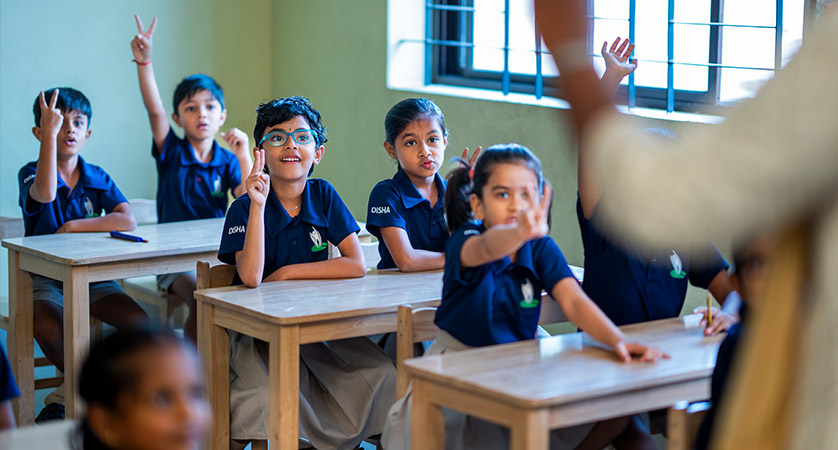
In the formative years, we cultivate an environment akin to a nurturing mother-teacher relationship. Up until Grade 3, dedicated class moms oversee the holistic development of our young scholars. Our students begin their day with a burst of energy during the Class Teacher (CT) period. This dedicated time includes activities like circle time, music and movement, life skills, and general knowledge sessions, setting the tone for an active day of learning.
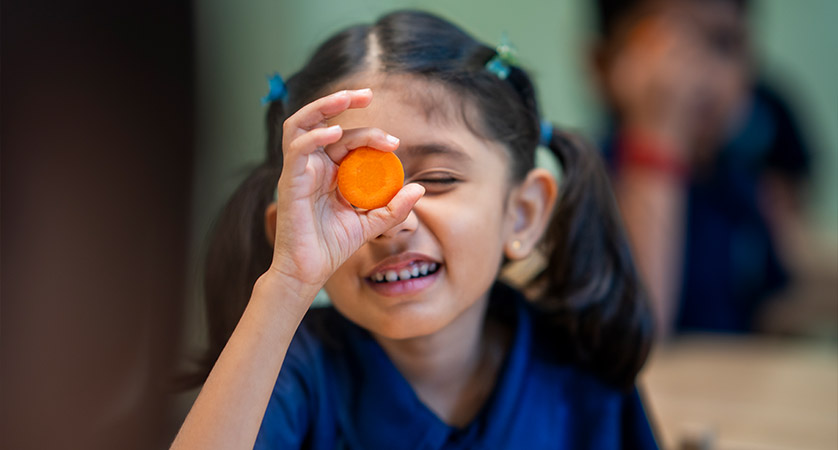
We ardently believe in imparting relevance and enthusiasm to education by structuring our curriculum around captivating themes. Hands on activities centred around the theme for each month helps real world contextualisation and nurtures their innate curiosity.
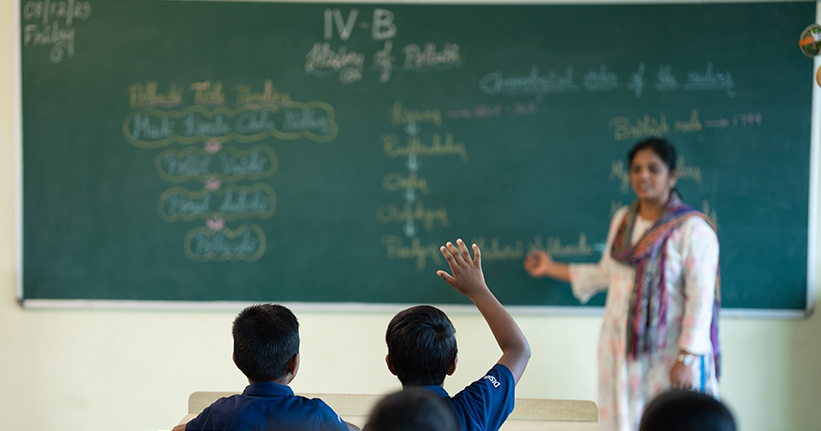
In Grades 4 and 5, students participate in various engaging activities during the first 15 minutes of the day. These activities include group discussions, which help them express their opinions confidently in public, and book reviews, fostering a love for reading. Our curriculum champions the integration of subjects, enabling students to forge connections across diverse domains of knowledge.
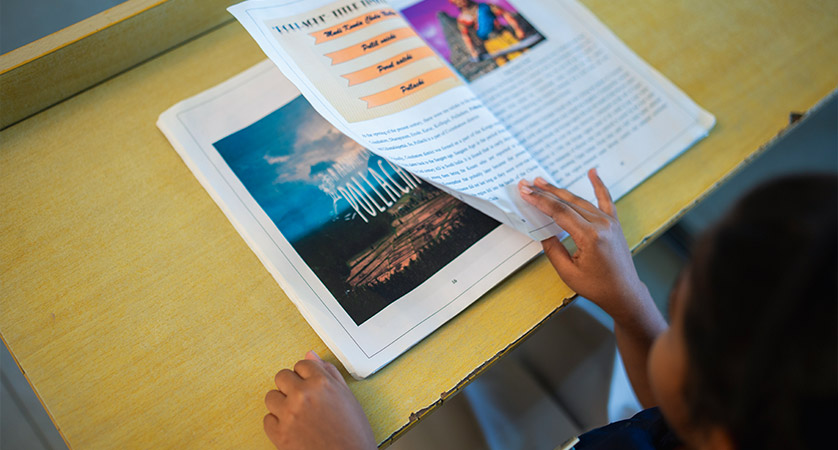
Though a primary education programme does not contain history as part of their syllabus, we have consciously incorporated the local history of Pollachi as the curriculum of social studies in Grade 4. This has made education relevant for our students and it was done with an intention to inculcate a sense of gratitude and responsibility towards the place we live in.
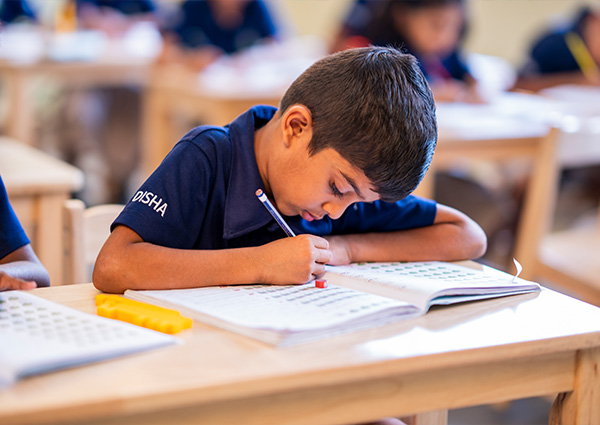
CCE emphasizes continuity and comprehensive assessment, evaluating cognitive, affective, and psychomotor domains. This system ensures a well-rounded assessment of each student's progress. As students progress to Grades 4 and 5, we introduce formal examinations, allowing them to demonstrate their knowledge and aptitude in a structured manner, thus honing their academic skills.
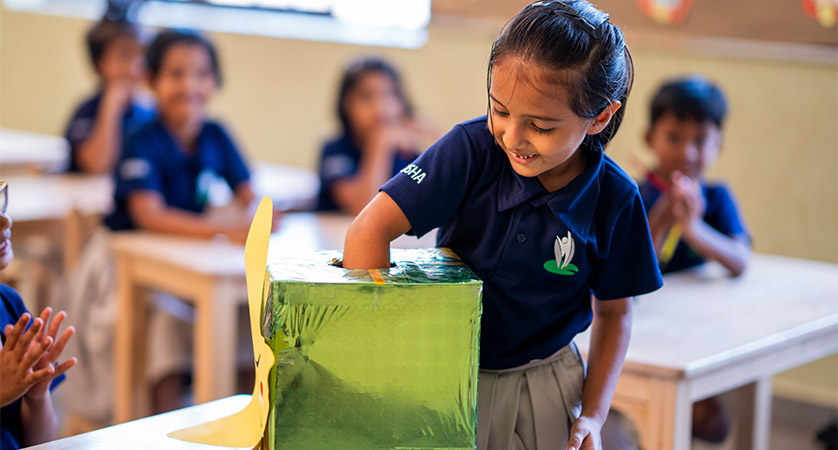
We believe in celebrating diversity and fostering cultural awareness. We take pride in embracing the rich tapestry of festivals that our nation and the world offer. Students and educators participate in fun celebrations that embrace the diversity of the world we live in. We nurture the spirit of healthy competition and teamwork through our Inter House Cultural and Sports Competitions. These activities further enrich our students' educational experience, promoting personal growth and camaraderie.
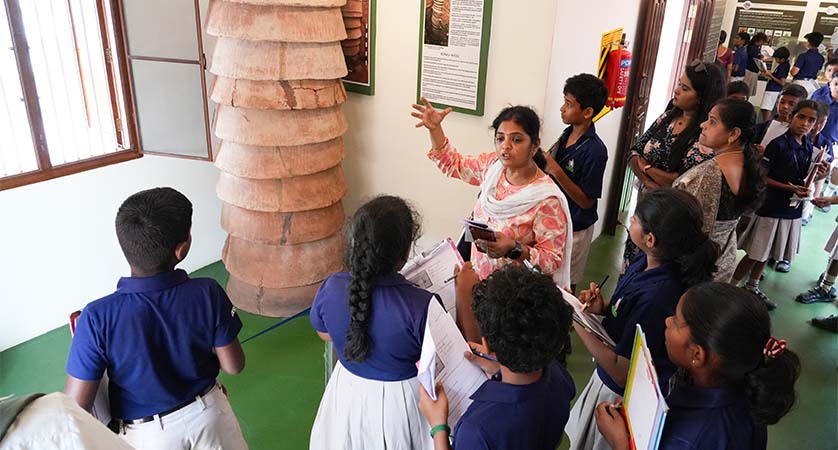
Our educational field trips are carefully designed to entertain and educate students, providing real-world experiences that enrich their educational journey. Students are exposed to the multiple livelihoods that exist around us. These field trips focus on nudging the students to critically think and understand the dynamics in the society they live in. Insightful conversations emerge as they experience realities and open discussions with educators transform their schools of thought.
